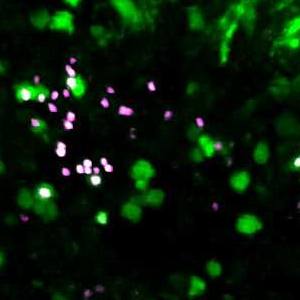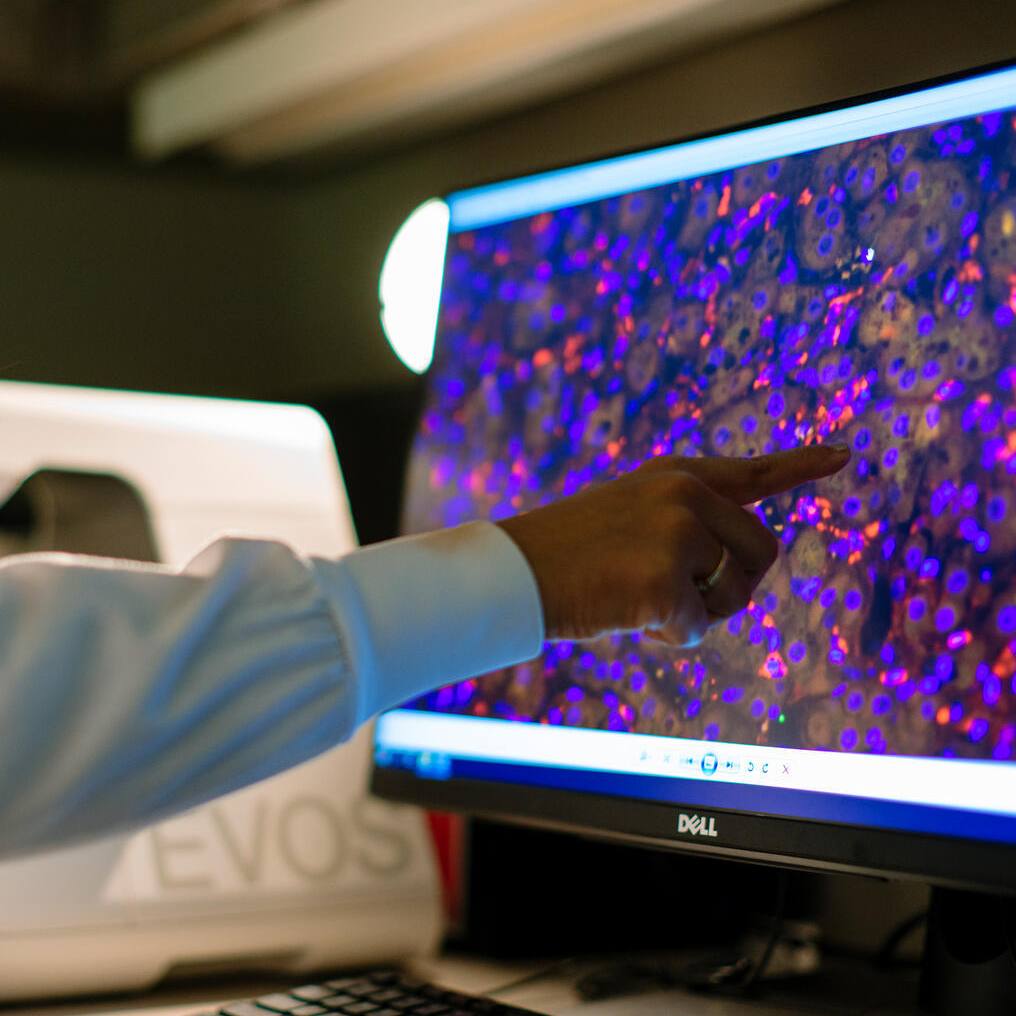-
Tumor Size is Defining Factor to Response from Promising Melanoma Drug
CHICAGO — In examining why some advanced melanoma patients respond so well to the experimental immunotherapy MK-3475, while others have a less robust response, researchers at Mayo Clinic in Florida found that the size of tumors before treatment was the strongest variable.
They say their findings, being presented June 2 at the 50th annual meeting of the American Society of Clinical Oncology (ASCO), offered several clinical insights that could lead to different treatment strategies and perhaps influence staging of advanced melanoma.
“This was the first robust assessment to determine the impact of baseline tumor size on clinical endpoints in patients with metastatic melanoma — in particular — those receiving MK-3475. Our findings suggest the location of spread is less important than the amount of tumor that is present before treatment,” says the study’s lead investigator, Richard W. Joseph, M.D., an oncologist at Mayo Clinic in Florida.
Journalists: Broadcast sound bites with Dr. Joseph are available in the downloads.
Metastatic melanoma is currently staged primarily according to where the cancer has spread — Stage IVa if melanoma has spread to distant skin, Stage IVb if the cancer has reached the lungs, and Stage IVc when melanoma has spread to other organs, such as the liver or bones. In general, prognosis for Stage IVa is best and for Stage IVc is worst.
“The traditional staging system does not account for the total volume of disease or baseline tumor burden,” Dr. Joseph says. “For instance, a Stage IVb patient with metastases only to the lung would be expected to have a better prognosis than a patient with Stage IVc. However, a patient with a large volume of disease in the lung may, in fact, have a worse prognosis than someone with a small volume of disease in the liver,” Dr. Joseph says.
“That is not to say this drug doesn’t work in patients with a large amount of disease. However, the efficacy is significantly less than in those with small volume disease,” he says. “While this may seem intuitive, this was the first robust analysis of its kind.”
The likely reason for this finding is that MK-3475 is a monoclonal antibody that stimulates the body’s immune system response to the tumors, Dr. Joseph says. “But the immune system can get overwhelmed when there is too much tumor, and not work as effectively as possible,” he says. “Some tumors have evolved to both evade and turn off nearby immune cells. MK-3475 provides a shield for the immune cells so that they can remain active when they reach the tumor.”
The drug is also being investigated in lung, bladder and kidney cancer.
“The implications of these findings are that perhaps decreasing the baseline tumor size through surgery or other means and then treating with MK-3475 may be a more effective means of inducing long-lasting remissions,” he says. Follow-up studies will be necessary to explore this strategy, he adds.
While Dr. Joseph led this study, he is a part of a team of international researchers studying the drug, which he says has offered patients with metastatic melanoma “truly impressive results.” In a phase I clinical trial, overall survival one year after treatment was 81 percent.
“In the past, immunotherapies were associated with relatively high toxicities and provided meaningful clinical benefit to the minority of patients. MK-3475 and other drugs like it are revolutionizing the way we treat metastatic melanoma by benefitting a much larger segment of the population as well as having very few side effects,” says Dr. Joseph.
MK-3475 is on the Food and Drug Administration’s list of priority reviews.
Dr. Joseph and Mayo Clinic in Florida have currently enrolled an additional 20 patients since the clinical trial was re-opened in April through an expanded access program for qualifying patients.
The study was funded by Merck.
# # #
About Mayo Clinic
Recognizing 150 years of serving humanity in 2014, Mayo Clinic is a nonprofit worldwide leader in medical care, research and education for people from all walks of life. For more information, visit 150years.mayoclinic.org, MayoClinic.org or newsnetwork.mayoclinic.org.
About Mayo Clinic Cancer Center
As a leading institution funded by the National Cancer Institute, Mayo Clinic Cancer Center conducts basic, clinical and population science research, translating discoveries into improved methods for prevention, diagnosis, prognosis and therapy. For information on cancer clinical trials, call 507-538-7623.
MEDIA CONTACTS:
Joe Dangor (at ASCO), Mayo Clinic Public Affairs, 651-261-9089 (cell), Email: dangor.yusuf@mayo.edu.
Paul Scotti, Mayo Clinic Public Affairs, 904-953-0199, Email: scotti.paul@mayo.edu.







